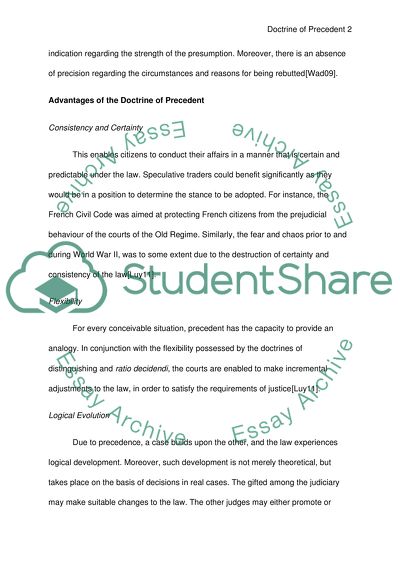Cite this document
(“Consider the doctrine of judicial precedent in the law of England and Essay”, n.d.)
Consider the doctrine of judicial precedent in the law of England and Essay. Retrieved from https://studentshare.org/law/1613381-consider-the-doctrine-of-judicial-precedent-in-the-law-of-england-and-wales-having-particular-regard-to-its-advantages-and-disadvantages-cite-relevant-case-law-examples-in-support-of-your-answer
Consider the doctrine of judicial precedent in the law of England and Essay. Retrieved from https://studentshare.org/law/1613381-consider-the-doctrine-of-judicial-precedent-in-the-law-of-england-and-wales-having-particular-regard-to-its-advantages-and-disadvantages-cite-relevant-case-law-examples-in-support-of-your-answer
(Consider the Doctrine of Judicial Precedent in the Law of England and Essay)
Consider the Doctrine of Judicial Precedent in the Law of England and Essay. https://studentshare.org/law/1613381-consider-the-doctrine-of-judicial-precedent-in-the-law-of-england-and-wales-having-particular-regard-to-its-advantages-and-disadvantages-cite-relevant-case-law-examples-in-support-of-your-answer.
Consider the Doctrine of Judicial Precedent in the Law of England and Essay. https://studentshare.org/law/1613381-consider-the-doctrine-of-judicial-precedent-in-the-law-of-england-and-wales-having-particular-regard-to-its-advantages-and-disadvantages-cite-relevant-case-law-examples-in-support-of-your-answer.
“Consider the Doctrine of Judicial Precedent in the Law of England and Essay”, n.d. https://studentshare.org/law/1613381-consider-the-doctrine-of-judicial-precedent-in-the-law-of-england-and-wales-having-particular-regard-to-its-advantages-and-disadvantages-cite-relevant-case-law-examples-in-support-of-your-answer.


